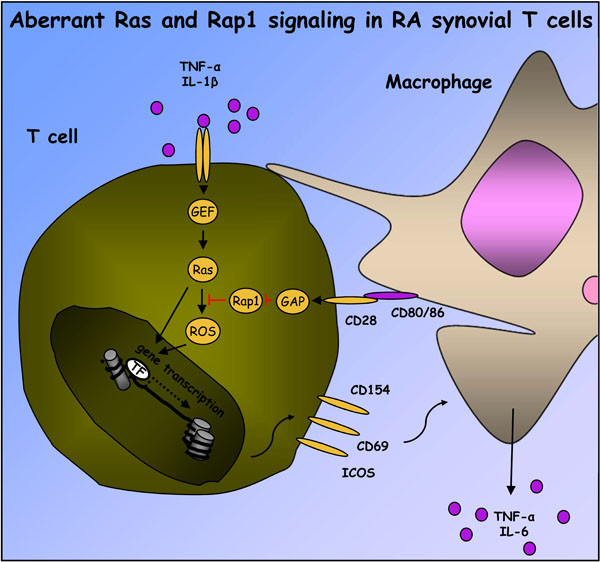Fig. (2) Contributions of Ras and Rap signaling to RA synovial T cell activation. Exposure of T cells to IL-1β and TNFα, among other inflammatory cytokines, leads to activation of unidentified T cell Ras GEFs and Ras proteins. ROS-dependent and –independent pathways downstream of Ras can stimulate T cell inflammatory gene transcription. Ras-dependent signaling in T cells is usually buffered, directly or indirectly, by activation of Rap1. However, in RA synovial tissue, macrophage CD80 and/or CD86 stimulate RapGAP activity associated with CD28, preventing activation of Rap1. In the absence of Rap1 signaling, T cell ROS and other Ras-dependent signaling pathways are enhanced, promoting expression of ICOS, CD154 and perhaps other activation markers, which in turn perpetuate activation of synovial macrophages.

